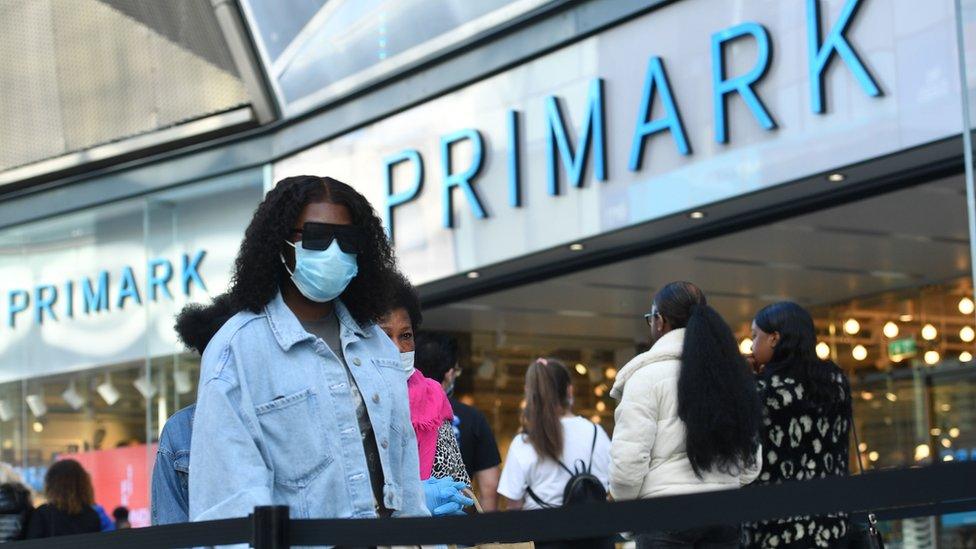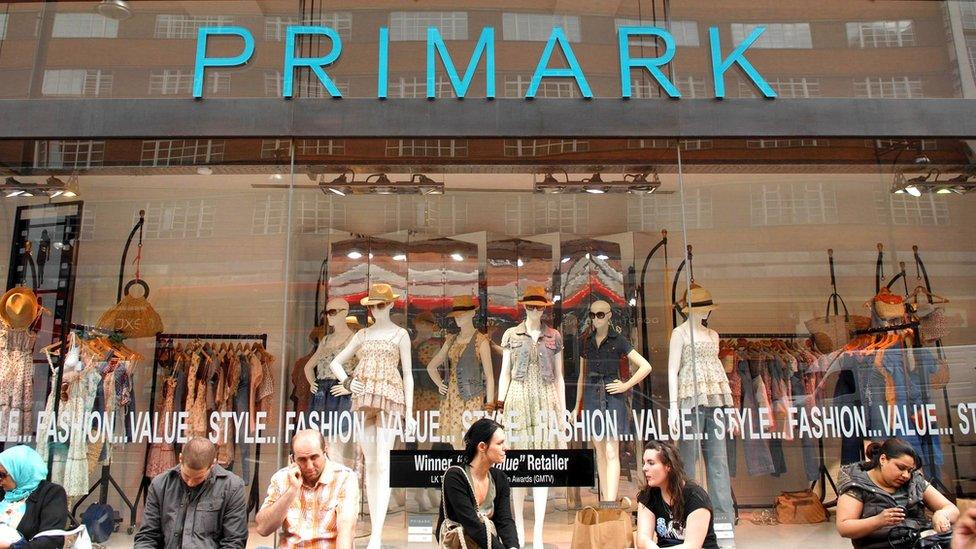Primark to cut 400 store management jobs
- Published

The company behind retailer Primark and drinks Ovaltine and Twinings is cutting jobs and raising some prices as inflation pushes up its costs.
AB Foods (ABF) said it would cut 400 jobs at Primark as part of a drive to simplify the management structure.
The group, which has ingredients and agriculture arms, said higher energy and transport cost may push up prices.
Despite inflation pressures and Omicron hitting Primark sales, ABF said the group had seen stronger trading.
The company said the Primark job changes aimed to "provide clearer accountability, greater flexibility and more management support on the shop floor".
Primark, which employs 29,000 staff in total across 191 stores in the UK, said it would be consulting with staff over the next couple of months.
Kari Rodgers, Primark retail director for the UK, said: "The changes we're proposing will deliver a simplified and more consistent management structure across all of our stores, provide more opportunities for career progression and offer greater flexibility.
"We are now focused on supporting our colleagues who are affected by these proposed changes and will be going through the consultation process."
Supply delays
Details of the job cut plans came as Primark revealed it had seen a hit to recent trading as the Omicron variant of coronavirus kept shoppers away from stores.
The group said Primark's UK like-for-like sales were 10% lower in the 16 weeks to 8 January when compared with pre-pandemic levels two years ago, with shopper footfall hit by the rapid rise in Omicron cases.
But ABF said shopper numbers and trading had since improved as Omicron fears ease and added that like-for-like sales were higher when compared with a year earlier, when stores were shut due to lockdown measures.
Total group-wide sales at Primark, which does not have an online operation, were 36% ahead year-on-year, it added.
ABF's said supply chain problems had begun to ease since last autumn, although it is still seeing some delays at ports and with shipments.
The company said: "In our grocery, sugar, ingredients and agriculture businesses we have seen an escalation in the cost of energy, logistics and commodities.
"We have been implementing plans to offset these through operational cost savings and, where necessary, the implementation of price increases."

However, despite inflationary pressures, Primark will not raise prices for its spring/summer range, ABF's finance chief told reporters.
"Primark prices for the consumer will remain where they are," John Bason said. "It's locked and loaded."
Other retailers have signalled prices increases, including Superdry. Boss Julian Dunkerton said that prices will increase by about 2% due to rising costs.
But he said Superdry will also be able to offset some cost hikes by slashing the number of items the retailer has on sale, something that has been part of the Superdry plan since before Covid-19.
"No stores will ever have a sale again," he told the PA news agency, and "discounting is limited to a shorter period online and very limited".
Rival Next has flagged price rises of 3.7% in the first half of 2022 and 6% in the second half due to higher freight rates and increased manufacturing costs. Marks & Spencer has also indicated price rises are possible.
Laura Hoy, equity analyst at Hargreaves Lansdown, said ABF's diversified business was a safety net throughout the pandemic.
"But as things normalise all eyes are on retail for signs of a comeback," she said. "Compared to last year, when store closures kept sales painfully low, revenue rose considerably. But sales at Primark have yet to make their way to pre-pandemic levels."
Related topics
- Published6 January 2022

- Published20 December 2021
